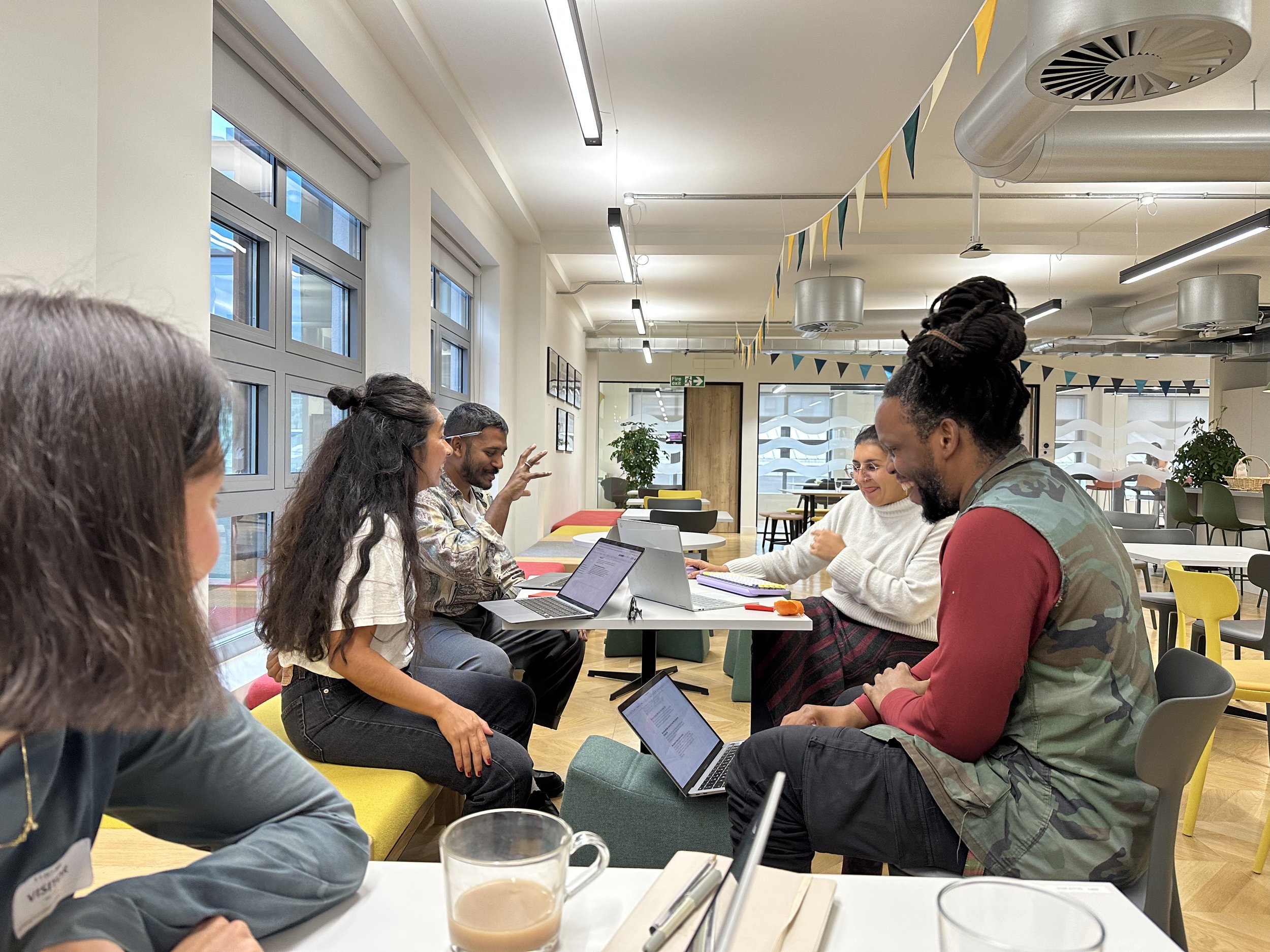About
We define ‘urban health’ as a term used to investigate the intersectional lived experiences of urban dwellers. It focuses on the unique influence urbanisation has on our biological systems through exposure to environmental and psychosocial stressors.
The word “council” has its etymological roots in the Latin word “concalare”; “con” meaning together and “calare” meaning summon. The word council is akin to that of the early 20th century soviets in Russia; self-organised worker groups opposing top-down representation and centralisation, and that of the Zapatista caracoles in Chiapas, Mexico; a confederalist system of organising where power is not thought of through political representation in the form of proletarian dictatorship but of “democratising the power relations of everyday life”.
The word council has a long history of being a structure for bottom up organising. Its flexibility allows for autonomy to flourish, meaning that communities can enact their version and vision of an urban health council - one that works for their health needs.
This Urban Health Council’s role is to summon together people under an autonomous method of governance and practice whereby peer-led programmes determine the direction of production of works that support health justice movements, led by the People for the People, meeting them where they are with what they need. Each programme is supported through a scientific, technical and financial ecosystem where all works produced are made open-access in a Living Encyclopedia. This Urban Health Council set up by Centric Lab must not be the only one, there needs to be an ecosystem of councils embodying the principles as outlined previously.
Away from top down power, we can have a politics of health recognising inclusion, empathy, and healing and the emancipation of people marginalised, brutalised, shamed, and made worse by prejudicial health systems and knowledges rooted in colonial framings of humanity.
When many sites of self-governance emerge investigating, strategising, producing together we will have an infrastructure for healing and health justice. As this report has stated, this architecture for epistemic justice needs a resourced radical knowledge infrastructure to allow its development to occur organically, for the emergence of a Zapatismo pluriverse: “a world in which many worlds fit”.
Arora and Sterling provide a simple yet powerful summary of the pluriverse based on Marisol de la Cadena and Mario Blaser’s 2018 Proposals for a World of Many Worlds:
Each of these worlds has its own ways of relating between different beings, human and nonhuman. Each world produces its own languages and techniques mediating relations between humans and with nonhumans. Through these relations, diverse knowledges and practices are produced to connect and communicate across categorical divides between nature and culture. Each world is thus composed by specific ways of living-knowing.
-
Reframe health as an ecological phenomena
Create awareness about the link between the places we inhabit and health outcomes
Provide a public health service which supports equitable healing futures
Committed to playing our role in identifying and ending the factors that lead to health inequities
Providing an equitable community and ecosystem for citizen and practitioner. The more of us come together, the faster we heal.
-
Over the years the Urban Health Council has developed 5 core themes of investigation:
Air Pollution & the Right to Pollute policies,
Traditional Ecological Knowledges & Urban Systems,
Obesity Justice,
Trans & Gender Non-Binary Health Systems
Healthcare & Medical Justice Training
These programmes are led in peer-to-peer co-learning formats. We bring scientists, researchers, policy thinkers, and communities together to identify, research, and produce health justice solutions.
The outputs are put into a Living Encyclopedia, a community led and scientifically rooted reportings that are in constant progression as injustice is an evolving phenomena.
We hold open house virtual sessions inviting people to work with us advancing these programmes twice per year.
We continually welcome feedback as well as offers to help push the Urban Health Council further.
-
We are citizen and philanthropic grant funded programme which means that we are able to guide our science outside the influence of governing bodies, who can often steer science towards a top down narrative and agenda.
It also allows us to keep our research open, creating democratic access to valuable scientific information about health that is of public interest.
In November 2022 Impact on Urban Health partnered as an anchor funder to help the Urban Health Council’s growth and impact strategy. We would like to say a special thank you to the National Lottery Community Fund, which has helped us engage with communities around the UK in 2021 to learn more about the science behind health outcomes.

“rather than a one-way relationship where the knowledge produced by movements is drawn on for purely academic purposes within an essentially closed discourse and the results of research are typically restricted to university libraries, our goal is to make relevant research public, without charge and in languages which seek communication rather than accreditation.”
Cox / Fominaya: Movement knowledge (2009)
